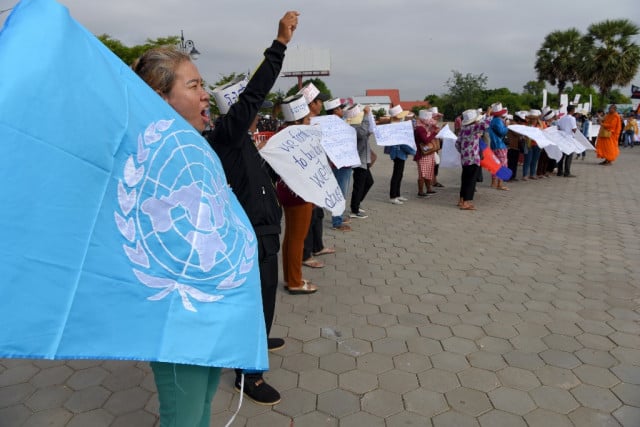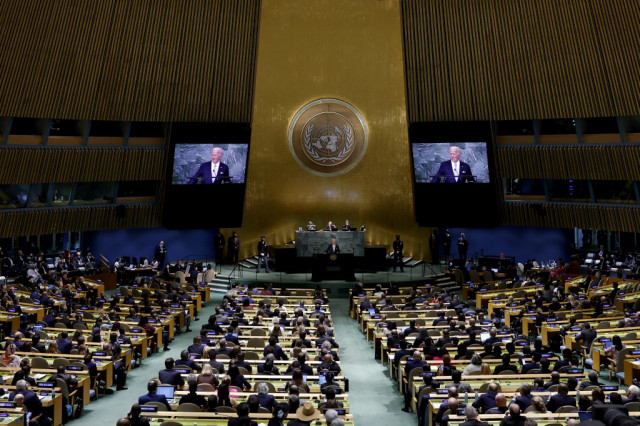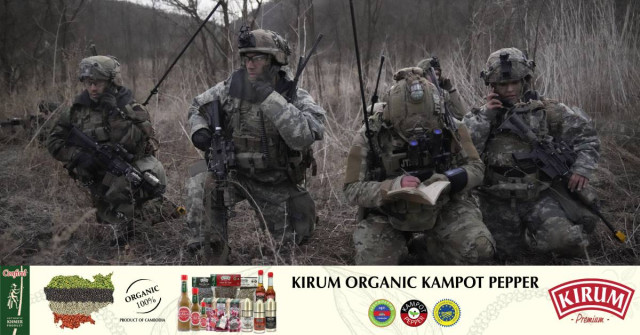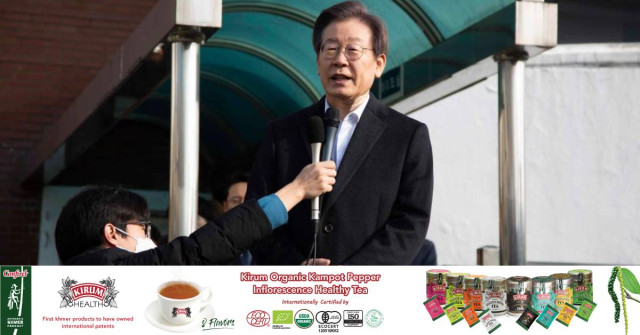International Community Urged to Act over Human Rights Abuses in Cambodia

- Phoung Vantha and Gerald Flynn
- July 23, 2020 8:56 AM
A joint statement from 33 civil society organizations called upon democratic nations to help Cambodia fulfil its obligations under international law.
PHNOM PENH--A collection of 33 civil society organizations on July 21 urged 13 governments of democratic countries to echo the European Union (EU) in its call for the respect of human rights and democratic freedoms in Cambodia.
“We urge your government to call on the Cambodian government to comply with its obligations under international human rights law and to support the EU in its efforts to bring respect for human rights, rule of law, and democracy to the Cambodian people,” they said.
Echoing the concerns of the United Nations Special Rapporteur on Human Rights, a range of local NGOs and various foreign governments, the statement called for greater freedoms within Cambodia’s civil society, trade unions, media and political space.
A wide range of organizations and institutions have rallied around the EU following their Feb. 12 decision to partially suspend Cambodia’s access to the Everything But Arms preferential trading scheme. Cambodian exports of garments and footwear to the EU were valued at €4.6 billion ($5.3 billion) in 2018, while EBA allowed Cambodia to export some 7,200 types of products with no quotas or tariffs.
The roughly 20 percent tariffs are set to be applied as of Aug. 12, 2020, despite pleas from the Garment Manufacturers Association in Cambodia and other commercially interested parties. The Cambodian government has, for the most part, refused to comply with the EU’s demands that it follow basic principles of international law.
The July 21 statement was issued to the governments of Australia, Canada, Finland, France, Germany, India, Japan, New Zealand, Sweden, the Netherlands, the Republic of Korea, the United Kingdom and the United States of America.
“The letter is addressed to all the key ‘like-minded’ countries who have previously stated their commitment to support efforts to restore participatory democracy and promote respect for human rights in Cambodia,” explained Phil Robertson, deputy director of Asia’s Human Rights Watch division. “Now is the time for action, not just more talk—and that means actively supporting the EU and its EBA decision rather than letting various companies and chambers of commerce tear the EU down for taking this appropriate step.”
Robertson noted that many of the countries addressed in the statement were also signatories to the 1991 Paris Peace Agreements and that Human Rights Watch—along with the other 32 groups—were requesting the 13 countries to help ensure Cambodia lives up to its pledge to democracy.
Avoiding Accountability
Critics have raised concerns that the EBA decision will impact Cambodia’s poorest—in particular the estimated 750,000 Cambodians working in garment manufacturing. The garment sector chiefly employs Cambodian women and has been regarded as a key economic driver that has helped to life many Cambodians out of poverty, although the Coronavirus Disease 2019 (COVID-19) has wreaked havoc on the industry’s supply chains and export markets, leaving 150,000 workers out of work or working reduced hours.
“For decades, [Prime Minister] Hun Sen and the ruling [Cambodian People’s Party] have used the poor people of Cambodia as a shield to argue against any sort of pressure for improved governance and respect for human rights in the country,” said Robertson, who argued that democratic and rights-respecting reforms are the only path to sustainable development in Cambodia.
Robertson warned that the prevailing geopolitical climate, one that has seen various democratic nations squaring off against China—Cambodia’s largest international supporter economically and politically—will leave Cambodia isolated.
From outlawing the main opposition party in 2017 ahead of the national elections and jailing the party’s leader Kem Sokha to shuttering independent news outlets and curtailing civil society organizations, Cambodia’s government has, in the eyes of international observers, drifted further from the democratic principles the country was founded on.
Political Rhetoric
However, Phay Siphan—a spokesman for the Cambodian government—dismissed the open letter of the 33 international organizations as mere political rhetoric and added that Cambodia would not negotiate with the EU.
He added that the government has already negotiated with the EU in the past and the decision will depend on the EU. However, he said that it would be unfair if the EU decides to withdraw 20 percent of EBA from Cambodia, but declined to comment on alleged human rights abuses.
Siphan stressed that the most important thing for Cambodia is to maintain peace and well-being for the Cambodian people by not letting anyone destroy it.
When asked whether he was concerned about the impact of EBA loss on Cambodia’s economy, he simply replied “We are ready.”
The July 21 statement from 33 organizations demanded the release of political prisoners, including activists and journalists, but also called for a cessation to the ongoing harassment of union leaders, land rights activists and environmentalists. Kem Sokha’s treason case should be dropped, the statement said and independent investigations should be conducted into the killing of political analysts Kem Ley.
Likewise, it calls for a repeal of the State of Emergency Law that was passed in just two weeks during the height of the COVID-19 pandemic, but the statement also calls for amendments to the Law on Trade Unions and the Law on Associations and Non-governmental Organizations.
Finally, the statement urges the government to embrace the UN High Commissioner for Human Rights and accept their mandate to observe and assess Cambodia’s situation, while ceasing land grabs, forced evictions and the harassment of trade union leaders.















